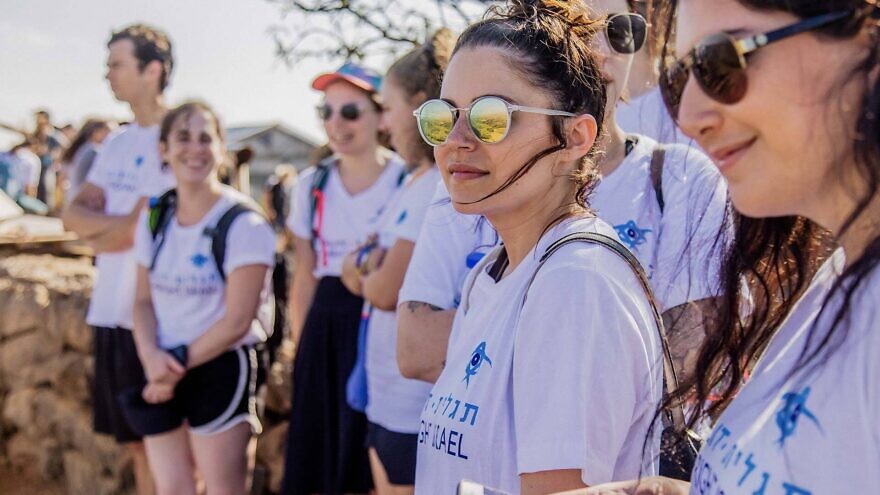Starting this week, about 14,000 Birthright Israel participants from nearly 900 universities and colleges in North America are expected to land in Israel in the coming months. The flights mark Birthright Israel’s long-awaited return after a series of suspensions since the start of the coronavirus pandemic. Birthright expects to bring about another 5,000 young adults from North America for a total of 19,000, in addition to 7,000 more participants from other parts of the world during this summer.
“We started trips last May, but it was up and down,” Noa Bauer, vice president of global marketing at Birthright Israel, told JNS.
Birthright offers free, 10-day trips to Israel for young Jews between the ages of 18 and 26 (for a while, the age had reached up to 32, but that bracket will end this fall). Its mission is to give every Jewish young adult around the world, especially those less connected to their faith, the opportunity to visit Israel on an educational trip. Birthright is currently the largest educational tourism organization in the world.
Zachary Lech, 20, a student at Harvard University studying government, will travel to Israel in two weeks. “This pandemic definitely affected my plans to an extent. It just seemed slightly more dangerous to go to the country, seeing how the restrictions might be affecting things. I was more just waiting for my opportunity to go,” he told JNS.
“It’s more than a sightseeing trip for me. It’s also a chance to connect to Jewish heritage and culture,” said the Polish-born Lech, who is active in the Harvard Jewish community, including at Hillel.
‘A lot of Ukrainians are coming to Israel’
While this summer’s participants probably won’t notice much of a difference from pre-COVID times, Bauer stressed that for Birthright staff, much is different in how they are preparing for trips.
“The world has changed, as it has for us as well, both in terms of logistics and from a health perspective. We still have smaller groups than pre-COVID, and we mostly are using direct flights because things travel-wise around the world are still challenging,” she said.
“So, we’re trying to keep it simple. There are fewer tests and the masks are mostly off in Israel now, and we’re hoping it stays that way,” continued Bauer. “Prices are going up, so we need to take that into consideration, along with making sure we have enough hotels and buses, and getting a lot of crew on the ground.”
As the Israeli tourism sector looks to make a full return, Birthright officials believe that their program will help set the foundation in the coming weeks and months.
“I think we will be a massive percentage of tourism, especially in May. The challenge for us is mainly internal tourism; also, a lot of Ukrainians are coming to Israel and staying in hotels, so that is taking part of the hotel availability,” said Bauer.
She noted that some space remains on select campuses, though most of the trips are already full. There are also trips for those who require accessibility considerations.
Birthright Israel CEO Gidi Mark said “after a long hiatus, we are excited to bring back so many students from North America to these important and exciting tours to Israel. Many of these students are coming from college and university campuses where incidences of anti-Semitism are increasing, leaving them feeling beleaguered and isolated. We know that after going on a Birthright trip, these students feel more confident.”
Israel, of course, offers the dichotomy between the resort-like atmosphere along the Tel Aviv beach and the more spiritual side of Jerusalem.
For his part, Lech said he is looking forward to touring and “being able to connect. I feel like it’s going to be a great experience going to the Western Wall in Jerusalem and being able to actually be at one of our most sacred sites.”

























